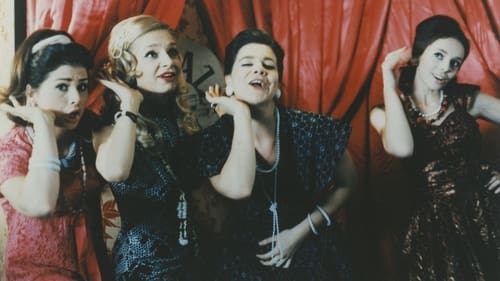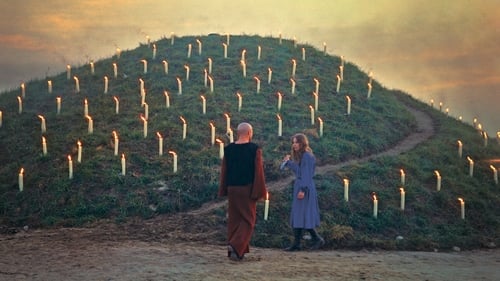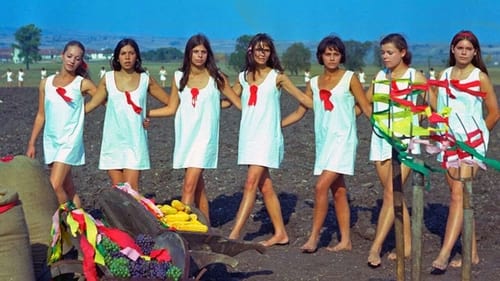Tamás Cseh
출생 : 1943-01-22, Budapest, Hungary
사망 : 2009-08-07

Music

Narrátor
If you have something to give, give it forever.

Himself

Halmi
The makers, especially Péter Tímár wanted to invoke the atmosphere of the communist dictatorship of Rákosi era lasted from 1947 to 1956. I think they've managed to reconstruct it very much: if you read the history books about the era and newspapers from that times, if you listened to your parents' and grandparents' tales, you will experience the similarities are shocking. The main character (Tutti - Károly Eperjes) is excellent, Eperjes, acting an eccentric, but likable crank is in his royal spirits.

Angéla's father
The movie is set in the actual "Ki Mit Tud?" talent contest in 1962. In reality the contest in dance music category was won by an army brass band. "Omega" which later became one of the most successful Hungarian rock bands came out in the second place.

Himself
Live concert at Madarasi Hargita

Zoltán Bánki
This Hungarian comedy depicts the exploits of 8 members of a travelling troupe of actors and musicians as they move about the country performing a series of one night stands.

Music
1859. Exploiting the Austrian-French-Italian conflict, Kossuth sends Batiszy Kristóf back from the emigration to organize the Hungarian Legion. Batiszy's company gets into trouble, Austrians are waiting for them, Hungarian authorities chase them, people stand still. Demolition of the troop is the task of Görgényi László chief district administrator, who used to be an officer in the revolution once.

as Self

Zoltai is a Hungarian professor who returns home after a visit to the United States. Following a television interview, he commits suicide and leaves a note for his longtime friend Dr. Bardocz. The doctor and Zoltai's colleague Komindi join the police in investigating what drove the man to suicide.

Music
Zoltai is a Hungarian professor who returns home after a visit to the United States. Following a television interview, he commits suicide and leaves a note for his longtime friend Dr. Bardocz. The doctor and Zoltai's colleague Komindi join the police in investigating what drove the man to suicide.

Halasi's brother
Peter Gothar films give a sharp, uncensored view of the society. This film is no different. The plot is rather simple: a family goes to vacation with the usual stress. Then on the vacation the wife gets a strange kind of sickness and they go back to Budapest for a cure. While the wife is in the hospital, the husband visits his family. This is quite banal. However the scenario was written by Peter Esterhazy, one of the most influential contemporary writers in Hungary. His style uses a lot of surrealism but in a way that profoundly illuminates the reality. In this film, the reality is an atomized society where the so-called communist ideals are nowhere so everyday people are fully disoriented.

Buksi, the smuggler meet with Peter, the intellectual, who has been thought about the perfect crime, without any trace for such a long time. The smuggler forced Peter to work together: Peter's going to plan the action and Buksi's buddies implement it. No clues.

Original Music Composer
Dery is a grande dame actress of the Sarah Bernhardt school of big-gesture theater. Her beauty and popularity is fading, and a new school of acting which involves the use of one's own emotions (a-la Eleanora Duse) is emerging in the person of her younger Viennese rival. She thinks of retiring from the stage, and reunites briefly with her estranged husband in a newly-built manor in the country. Finding that life there is boring, she returns to town, the theater, and her old friends.

Dalnok
It has been fifteen years since the death of her father, Agamemnon, and Elektra still burns with hatred for Aegisztosz, who conspired with Elektra's mother to kill him.

Original Music Composer
개성 강한 작가 중에서도 가장 독창적인 작가로 평가받는 미끌로쉬 얀초의 작품으로 1972년 칸 영화제 감독상을 수상한 작품이다. 붉은 시편은 단지 28개의 쇼트만으로 구성되어져 있는데 그의 작품은 발레를 보는 듯한 인물들의 움직임과 역동적인 카메라를 워크, 탁월한 색채 감각이 빚어내는 생동감 넘치는 이미지들이 특징이다.

Énekes
개성 강한 작가 중에서도 가장 독창적인 작가로 평가받는 미끌로쉬 얀초의 작품으로 1972년 칸 영화제 감독상을 수상한 작품이다. 붉은 시편은 단지 28개의 쇼트만으로 구성되어져 있는데 그의 작품은 발레를 보는 듯한 인물들의 움직임과 역동적인 카메라를 워크, 탁월한 색채 감각이 빚어내는 생동감 넘치는 이미지들이 특징이다.

Janos Szasz's music film about Tamas Cseh.










